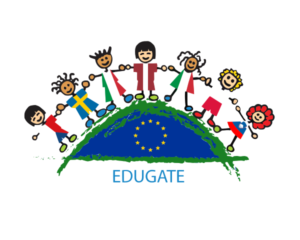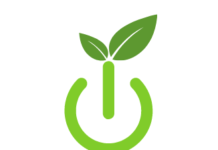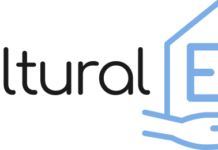Title of the project
EDUGATE – multilingual teaching in early childhood education and Care
Lead partner
Municipality of Piacenza, Italy
Programme and call
Erasmus +, KA2 (Cooperation for Innovation and the Exchange of Good Practices, Strategic Partnerships for School education), Call 2016, Round 1.
Project number: 2016-1-IT02-KA201-024294
Short description
The EDUGATE project stems from the idea that in these times of unprecedented economic and social challenges, it is essential to provide children with a solid start in life through the implementation of a high quality pre-school educational service. In fact, the broad benefits that pre-school education brings in early childhood have been widely acknowledged and range from economic benefits for society as a whole to better outcomes for individuals in their schooling. In particular, the project stems from the recognition of the lack of a pre-school service aimed at fully exploiting the potential of children in foreign language learning, despite the fact that the phenomenon of multiculturalism and migration is now consolidated even at school. In this perspective, it is especially important for migrant children to learn the language of the host country from an early age, in order to promote their integration into social, cultural and professional life. Moreover, it would be very useful for children to learn English or other vehicular languages that are valuable for them in their future adult life and for overcoming many barriers. For this reason, the project believes that it is essential to update and strengthen the training of teachers and educators working in the field of early childhood, in particular by updating their skills and abilities on the basis of the challenges posed by contemporary society, such as international mobility, multiculturalism, the need to think in a global world.
Objectives
– Strengthen the knowledge and skills of school staff, through the implementation of an analysis and exchange of experiences and information between partners who will improve their skills and knowledge on teaching a second language in the pre-school system.
– Improve the early childhood education system and make it competitive against contemporary European challenges.
– Improve the integration and inclusion of foreign children in the host country – particularly in the case of immigrants, refugees, asylum seekers who do not speak the language of the country in which they live.
– Create an educational and didactic programme that allows the introduction of the teaching of a second language in the pre-school system of the countries involved.
– Improve the education system for pre-school children to avoid possible difficulties in adulthood and to train adults who are able to face the challenges of a global and multicultural society.
Actions
– Drawing up of a Training Context and Needs Map analysing pre-school training from the point of view of teachers and educators
– Drawing up of a Collection of Innovative Good Practices in which at least 5 good practices collected in each partner country are reported
– Development of the Educational Programme and operational plan describing both the contents and the application model for a bilingual education system in the pre-school system
– Development of teaching materials for pre-school teachers to strengthen teachers’ skills
– Elaboration of the Guidelines for New Professional Curricula
– multiplier events organized locally by individual PPs to inform and involve local stakeholders;
– organisation of 6 virtual meetings (Skype) between the PPs of the project;
– organisation of 5 transnational meetings (including project start and end meetings), respectively in Italy, Sweden, Poland, Latvia, Slovenia.
– Realization of 2 transnational training sessions for teachers and educators, one in Italy and one in the Czech Republic
Results
– Drawing up of a map on training contexts and needs: the map will be produced following the analysis conducted in the first 7 months of the project and will give a picture of how educators and teachers of the pre-school system perceive the context and the training needs.
– Elaboration of a Collection of Innovative Good Practices: each partner will collect 5 good practices about innovative education systems implemented in Europe or worldwide.
– Development of the Educational Programme and operational plan. This will describe both theories and methodology with which the second language should be introduced into pre-school education.
– Teacher materials for the pre-school system: the teaching materials resulting from the implementation of the educational programme and the work plan will improve the teachers’ skills in teaching the second language in early childhood education services.
– Development of Guidelines for New Professional Curricula for Teaching Staff Working in Pre-School Services
– Improved training for pre-school educational staff on innovative and state-of-the-art training systems
– Strengthening the early childhood education system to make it competitive against contemporary European challenges.
– Better integration of foreign children and migrants, both in the classroom and in the social and cultural life of the host country.
Beneficiaries
Teachers, educators and other staff of the school services, parents, responsible for the definition of curricula for teachers, local authorities.
Partnership
The partnership shall be composed of the following actors
– Lead Partner: Municipality of Piacenza, Italy
– PP1: University of Milan Bicocca, Italy
– PP2: Municipality of Krasne, Poland
– PP3: Municipality of Riga – Department of Education, Sports and Culture, Latvia
– PP4: University of Gothenburg, Sweden
– PP5: ZS Angel, Czech Republic
– PP6: FINI Institute, Slovenia
Duration
The project had a duration of 36 months (01/09/2016 AL 31/08/2019)
Website
N/A
Total Budget
417,410.00 euro
Funding body
European Commission – Education, Audiovisual and Culture Executive Agency




